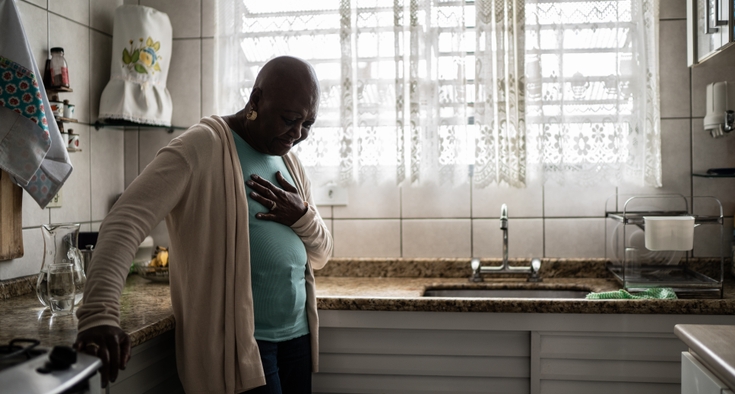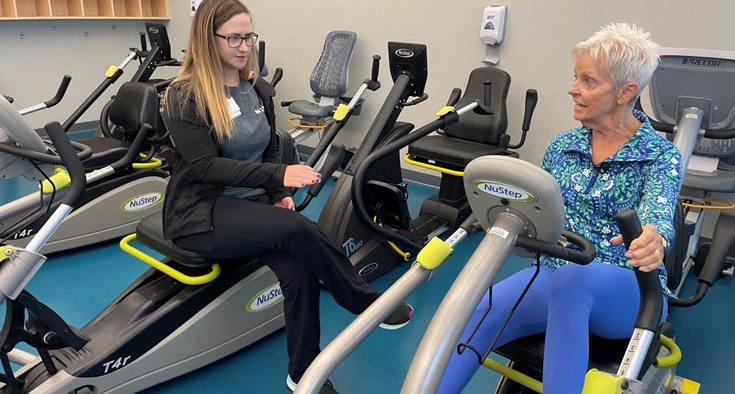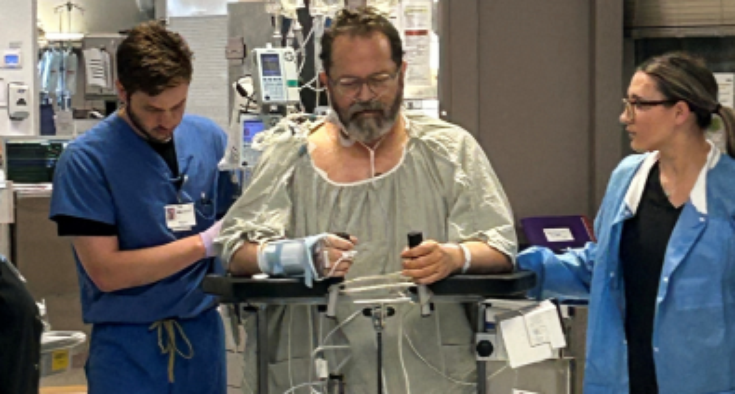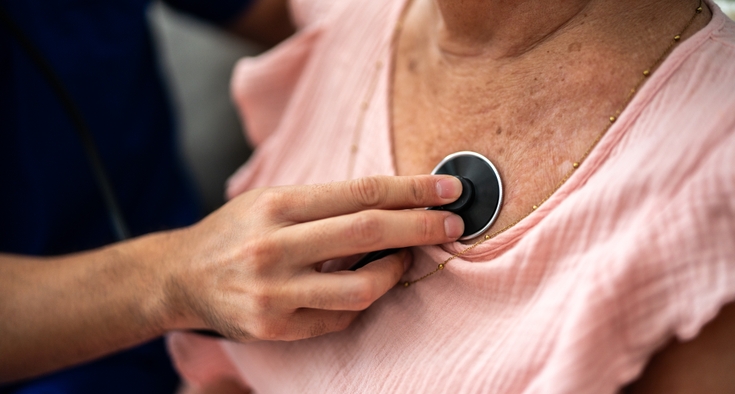While you may be focused on spiking your homemade eggnog, there’s something else you should be aware of that’s spiking during the holiday season: heart attacks.
A heart attack occurs when a blood clot blocks blood flow to the heart. Without blood, tissue loses oxygen and dies. In 2023, more than 680,000 people in the U.S. died of heart disease, making it the leading cause of death for men and women.

Dr. Kobina Wilmot, a cardiologist at Novant Health Heart & Vascular Institute - Salisbury, said there is a major reason for the surge in heart attacks: people delay seeking medical care until after the holidays. Some don’t want to interfere with family plans; others fear being hospitalized during the holiday season.
“They may have symptoms of problems and say, `I can wait until January to take care of that,’ or ‘I'll wait until later,’” Wilmot said. “You get sicker and by the time you're in the hospital, you're further along than you normally would be. During the holidays, there often is an upheaval in your lifestyle. People are running to go places and are doing things they don’t normally do.”

Dr. Frederick Meine, a cardiologist with Novant Health’s Heart and Vascular Institute in Wilmington, said people who have heart attacks during the holiday season are more likely to die than people who have heart attacks during other times of the year. Cardiac death is almost 5% higher during the holidays, the American Heart Association reports.
“People are coming to the hospital further along in their heart attack,” Meine explained.
The good news is, there are ways to mitigate your risk of a heart attack. So amidst the hustle and bustle, pause and take note of these tips that may be lifesaving.
Exceptional cardiovascular care.
5 heart-healthy tips to be mindful of this holiday season
1. Most importantly: Do not ignore heart attack symptoms.
“The care you get in the hospital on Christmas Day is the same quality as it is on June 15,” Meine emphasized, so don’t put off getting care. If you have chest pain, don't wait. Call 911. The smartest thing you can do when experiencing heart attack symptoms is to seek immediate help. Delaying heart care can mean a worse outcome, permanent disability or death.
2. Remember “everything in moderation.”
Meine’s motto is a good one to keep in mind when it comes to holiday meals. Holiday foods often contain high sodium, which increases blood pressure and forces your heart to work harder. Drink plenty of water between meals and try to make sure your plate contains protein, fruits and veggies (not just carbohydrates). "There's so much food everywhere, and that's part of the jolliness of the holidays," Wilmot said. "But you have to continue to think, 'Do I really need this?' Sometimes we're really not hungry, we're just tempted."
Best doctors. Amazing nurses. Remarkable care.
3. Practice stress-reduction techniques.
People without a strong support system may struggle with being alone during the holidays. Depression and anxiety can have a negative effect on your heart. Stress reduction techniques like walking in nature, practicing meditation, talking with a friend, journaling and listening to relaxing music can all be helpful.
4. Work in a walk.
Regular exercise is the single most important thing we can do to promote good heart health, Meine said. So try not to skimp on it during the holiday season, despite the many other obligations. He recommends 30 minutes of exercise a day, every day.
5. Pack your medications.
Travelers sometimes forget to pack their medications or face delays trying to get refills far from home. Make sure to refill your medications before traveling and, when flying, pack them in your carry-on bag in case you get separated from your checked baggage. And don't forget the tools you use to monitor your health. "Good surveillance is still important," Wilmot said. "If you travel, take your blood pressure cuff with you. Make sure you have your diabetes monitor to know your blood sugar levels."









